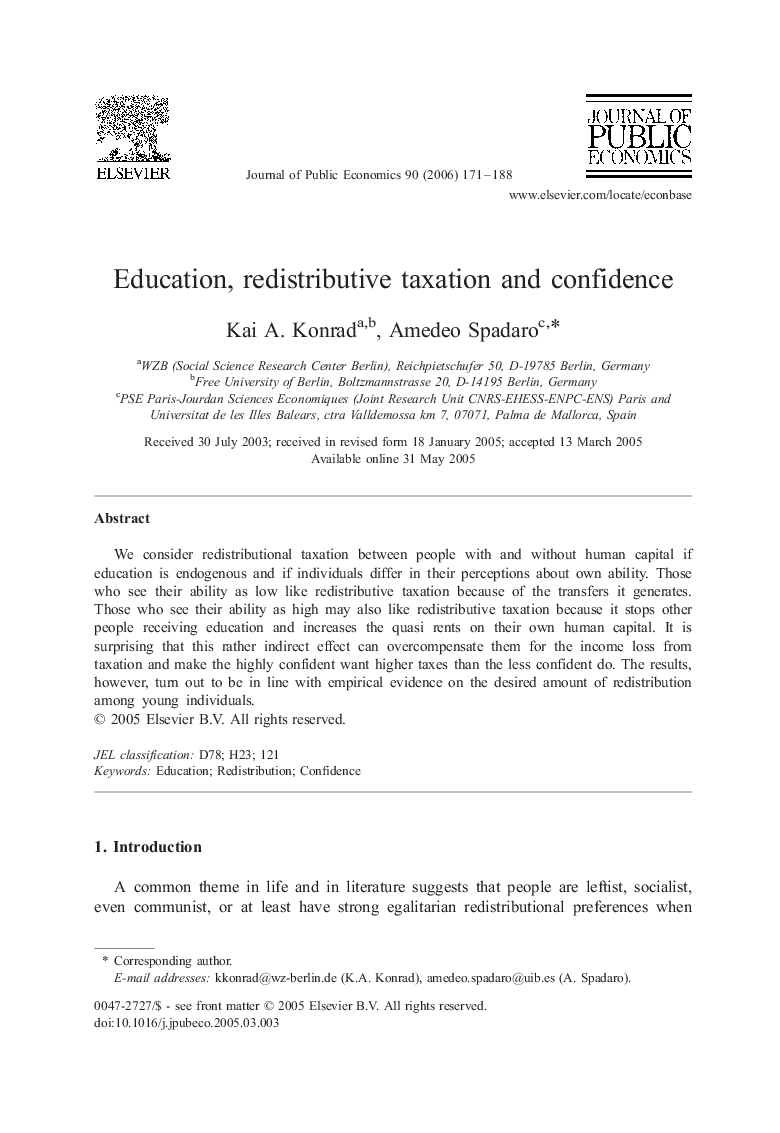| Article ID | Journal | Published Year | Pages | File Type |
|---|---|---|---|---|
| 969605 | Journal of Public Economics | 2006 | 18 Pages |
We consider redistributional taxation between people with and without human capital if education is endogenous and if individuals differ in their perceptions about own ability. Those who see their ability as low like redistributive taxation because of the transfers it generates. Those who see their ability as high may also like redistributive taxation because it stops other people receiving education and increases the quasi rents on their own human capital. It is surprising that this rather indirect effect can overcompensate them for the income loss from taxation and make the highly confident want higher taxes than the less confident do. The results, however, turn out to be in line with empirical evidence on the desired amount of redistribution among young individuals.
